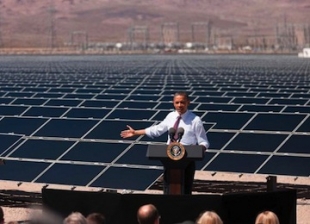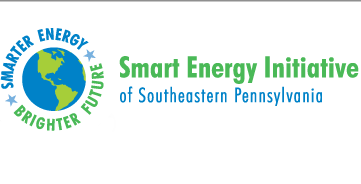Energy Efficiency Day is October 4. Please see events and offerings from KEEA in their recent newsletter. https://mailchi.mp/energyefficiencyalliance.org/eedaytomorrow?e=3ca8ad6881
Category Archives: Efficiency
October 17, 2023 – World Geothermal Energy Day – events through the fall with this topic!
SEI would like to remind our members to celebrate World Geothermal Day on October 17, 2023!
From worldgeothermalenergyday.org:
World Geothermal Energy Day is October 17, Annually
- Showcasing Geothermal Success around the Globe
- People engaging together with ideas, interaction, commemoration, recognition and education.
- A celebration of geothermal and the people who make it happen.
- Highlighting the environmentally friendly benefits of renewable geothermal energy, worldwide.
- Renewable, reimagined, re-engineered; a net-zero carbon system.
On October 17th, consider:
1) Commissioning and starting up your new Geothermal System on World Geothermal Energy Day for maximum media attention.
2) Sign your new deal for a Geothermal Installation on World Geothermal Energy Day for maximum social media outreach.
Bottom of Form
THE LATEST NEWS IN GEOTHERMAL ENERGY
German Chancellor Olaf Scholz Praises Eavor’s Technology
https://www.eavor.com/blog/german-chancellor-olaf-scholz-praises-eavors-technology/
Alberta Minister of Environment and Protected Areas Rebecca Schulz promotes Eavor-Loop™ technology in Germany
Startups Are Shaking Up Geothermal Power’s Prospects
https://www.powermag.com/startups-are-shaking-up-geothermal-powers-prospects/
How the Salton Sea could supply enough lithium to meet total U.S. demand
Geothermal Coming of Age: A Short History
https://www.phcppros.com/articles/17798-geothermal-coming-of-age-a-short-history
Drilling starts for the first commercial Eavor-Loop in Geretsried, Germany
Advancing Geothermal Energy
https://www.geothermal-advancement.com/
Who are we?
ELECTRIC POWER and ENERGY TRENDS
Eavor Loop visit | Scholz pledges 10 times more geothermal heating by 2030
Eavor signs agreement for Eavor-Loop geothermal project in Northern California
Eavor Technology reports validation of its Eavor-loop scalable geothermal technology
UPCOMING EVENTS (please let us know of any upcoming events that we should share)
World Geothermal Congress 2023 September 14 to 23
https://www.wgc2023.com/wgc2023/en/
Geothermal Rising Conference 1-4 October 2023 in Reno, Nevada.
https://grc2023.mygeoenergynow.org
IGSHPA Annual Conference December 5 – 7, 2023 Las Vegas, Nevada Convention Center.
2023 is also NGWA’s 75th anniversary.
April 8, 2022 – From PECO, An Opportunity This Big Can’t Be Ignored!
An Opportunity This Big Can’t Be Ignored
PECO Small Business Solutions provides a turnkey opportunity for small businesses with complimentary energy evaluations and covers a significant portion of the equipment costs for energy-efficient upgrades, including interior and exterior LED lighting, HVAC, refrigeration and food service. Learn more.
April 2021 – SEI Training Grant dollars available now!
SEI has training grant dollars to partially reimburse companies for training their employees for courses that are scheduled from January 1, 2021 – June 15, 2021. Go to https://smartenergypa.org/initiatives/training-funds/ to find out more.
October 12, 2020 – Financial incentives from PECO – expires May 15th, or earlier if funds run out
Below is an announcement SEI would like to share from our partners at PECO.
At PECO, safety is the top priority. As part of our commitment to safety, we’re continuing to monitor developments related to the coronavirus (COVID-19) pandemic and taking appropriate precautions to protect the health and safety of our employees, contractors and customers. Learn more about ways we can help.
Don’t let time run out on your chance to get financial incentives from PECO for making energy-efficient upgrades to your lighting, HVAC, refrigeration and more. Planning for, purchasing and installing equipment may take longer than you initially expect, but financial incentives from PECO will expire May 15, 2021, or earlier if funds run out.
Not sure what energy improvements to tackle first? Get your customized report to identify ideal areas for cost-saving improvements. Get started HERE
September 22, 2020 – Watch the newest commercial from SEI!
SEI has a commercial that has been on rotation with Comcast! View it HERE!
August 21, 2020 – PA sees first use of C-PACE loan for renewable Energy
Pennsylvania sees first use of C-PACE loan for renewable energy – Smart Energy Decisions
Shared from Smart Energy Decisions: https://www.smartenergydecisions.com/renewable-energy/2020/08/19/pennsylvania-sees-first-use-of-c-pace-loan-for-renewable-energy
August 21, 2020 – Has your County approved CPACE?
See the list of counties that have approved CPACE already! https://pennsylvaniacpace.org/participating-counties/
If you have a potential project in a county that has not yet enacted the resolution contact Sustainable Energy Fund at 610-264-4440 or email cpace@thesef.org to find the status of the county and next steps.
All that you need to know can be found here https://pennsylvaniacpace.org/. Note: banks need to “register” with Sustainable Energy Fund at 610-264-4440 or email cpace@thesef.org to participate.
8/24 – White House Announcement Boosts PACE Prospects
Monday, August 24th 2015
From greentechmedia.com:
 Some barriers to popularizing the property-assessed clean energy (PACE) program across the U.S. were cleared today with an announcement made by President Obama at the National Clean Energy Summit in Las Vegas, Nevada.
Some barriers to popularizing the property-assessed clean energy (PACE) program across the U.S. were cleared today with an announcement made by President Obama at the National Clean Energy Summit in Las Vegas, Nevada.
PACE loan programs let homeowners finance energy-efficiency upgrades, such as adding insulation and water savings measures or installing energy-efficient windows or solar panels, to be paid back as a line item on the homeowner’s property tax bill. This lowers the risk for lenders and owners and can potentially build a much larger energy-efficiency market.
But PACE obligations enjoy first-lien status in most states, making municipalities first in line to be repaid — ahead of the mortgage agencies, in case of default — and mortgage agencies don’t like that.
So today, the White House and the Federal Housing Administration (FHA) established a new PACE guidance aiming to “remove existing barriers and accelerate the use of PACE financing for single-family housing.” (The FHA guidance letter can be found here.)
According to the California Association of Realtors, the FHA guidance will require PACE liens to be subordinate to FHA single-family first-mortgage financing,
As Cisco DeVries, CEO of Renew Financial, notes in a release, “The FHA, which insures over 20 percent of new mortgage originations in the United States, outlined a set of principles associated with their new guidance — including allowing PACE financing to transfer between owners during the sale of the home if the PACE lien can be subordinated during a foreclosure.”
In a statement from today, Ed Golding, head of the FHA, wrote, “PACE allows homeowners to benefit from the improvements immediately and spread the cost over time. When the property is sold, the PACE loan may transfer to the next owner, who is responsible for repaying the loan. The ability to transfer the loan to the new owner allows for both the payment and the value of the retrofit to be transferred from one owner to the next.”
California completed about $500 million in residential PACE projects for approximately 25,000 homes in 2014, according to PACENow, a nonprofit that promotes the PACE model.
Read more at greentechmedia.com:
5/1 – Tesla Introduces New, Scalable Home Battery System
Friday, May 1st 2015
From CNET.com:
 Tesla Motors CEO Elon Musk officially announced two battery backup solutions, one for homes and one for industrial use, at an event at the company’s Southern California design studio. The lithium-ion battery modules can store electricity from solar panels and serve to balance loads from the grid, charging up during non-peak energy usage hours, then providing energy to a home or facility during peak hours.
Tesla Motors CEO Elon Musk officially announced two battery backup solutions, one for homes and one for industrial use, at an event at the company’s Southern California design studio. The lithium-ion battery modules can store electricity from solar panels and serve to balance loads from the grid, charging up during non-peak energy usage hours, then providing energy to a home or facility during peak hours.
Homeowners will be able to get the Powerwall, which Tesla will sell in 7 and 10 kilowatt-hour modules. Musk said that certified installers could buy the smaller pack for $3,000 and the larger pack for $3,500 (UK and Australian details were not announced).
For industrial applications, Tesla offers the Powerpack, sold in 100 kilowatt-hour modules at $25,000 each. Musk said that Tesla would work with industrial customers on these installations. The battery backup systems come under a new product line at Tesla called Tesla Energy.
Read more at CNET.com


